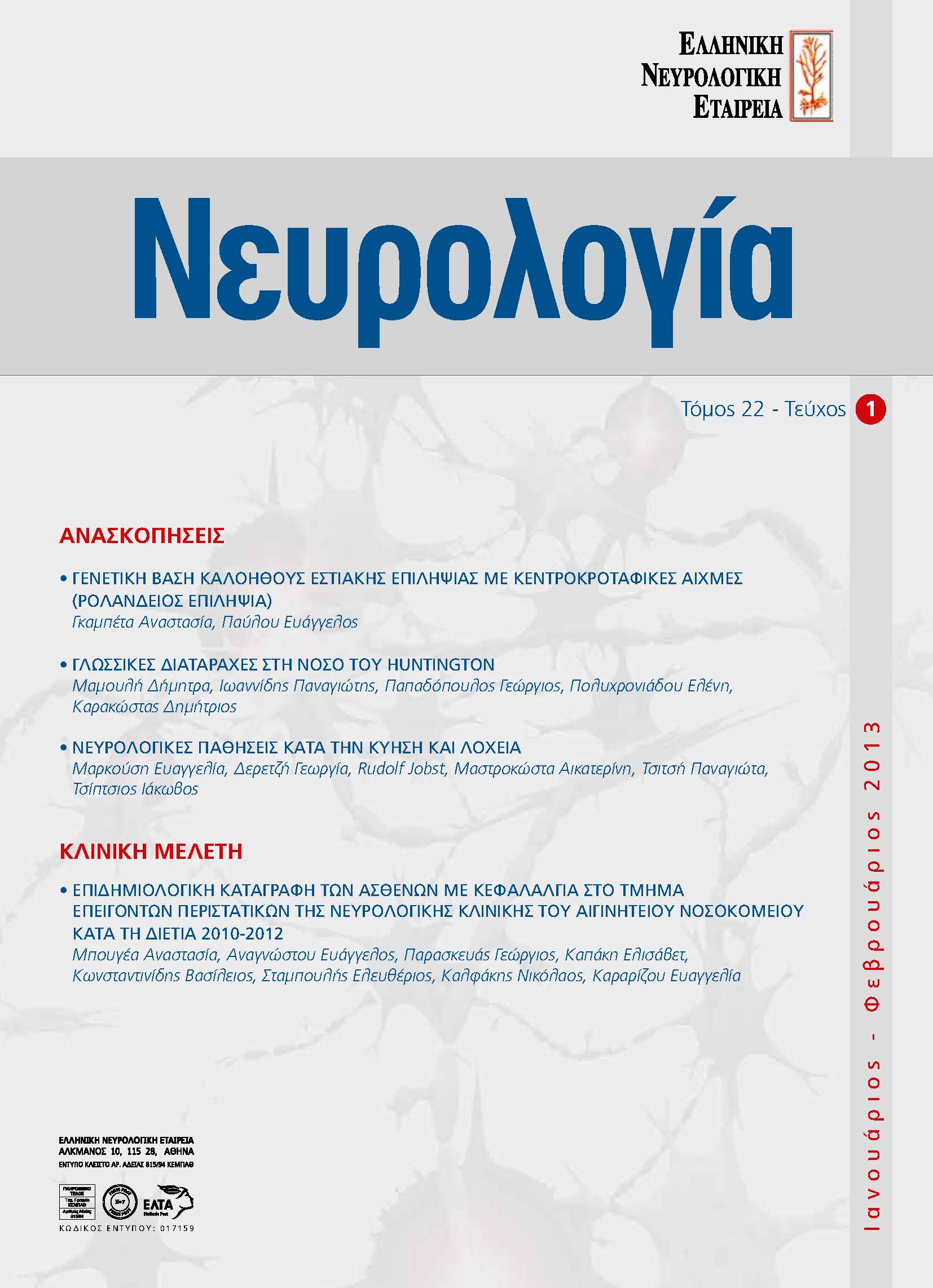Language disorders in Huntington’s disease
Keywords:
Huntington’s disease, language disorders, frontostriatal degenerationAbstract
Huntington’s disease (HD) is a hereditary neurodegenerative disorder, associated with chorea and dementia,
together with behavioral and language disorders. These disorders may appear early in the disease process
before the developement of motor and cognitive dysfunction. This review focuses on the research
concerning language disorders in HD and their associated neuroanatomical substrate. One of the main
findings indicates a correlation of hyperkinesia with excess use of verbs, whereas hypokinesia associated
with suppressed use of verbs. Further studies have shown that frontostriatal degeneration in HD causes
executive dysfunction with phonologic difficulties while semantic memory is maintained in the early stages,
since its function is based on temporal and parietal regions. This executive dysfunction could be revealed
by morphological, syntactic and subtraction tests performed at the patient’s bedside. On the other hand
syntactic rule abilities (use of verbs) seem to correlate with the clinical staging of the disease.


